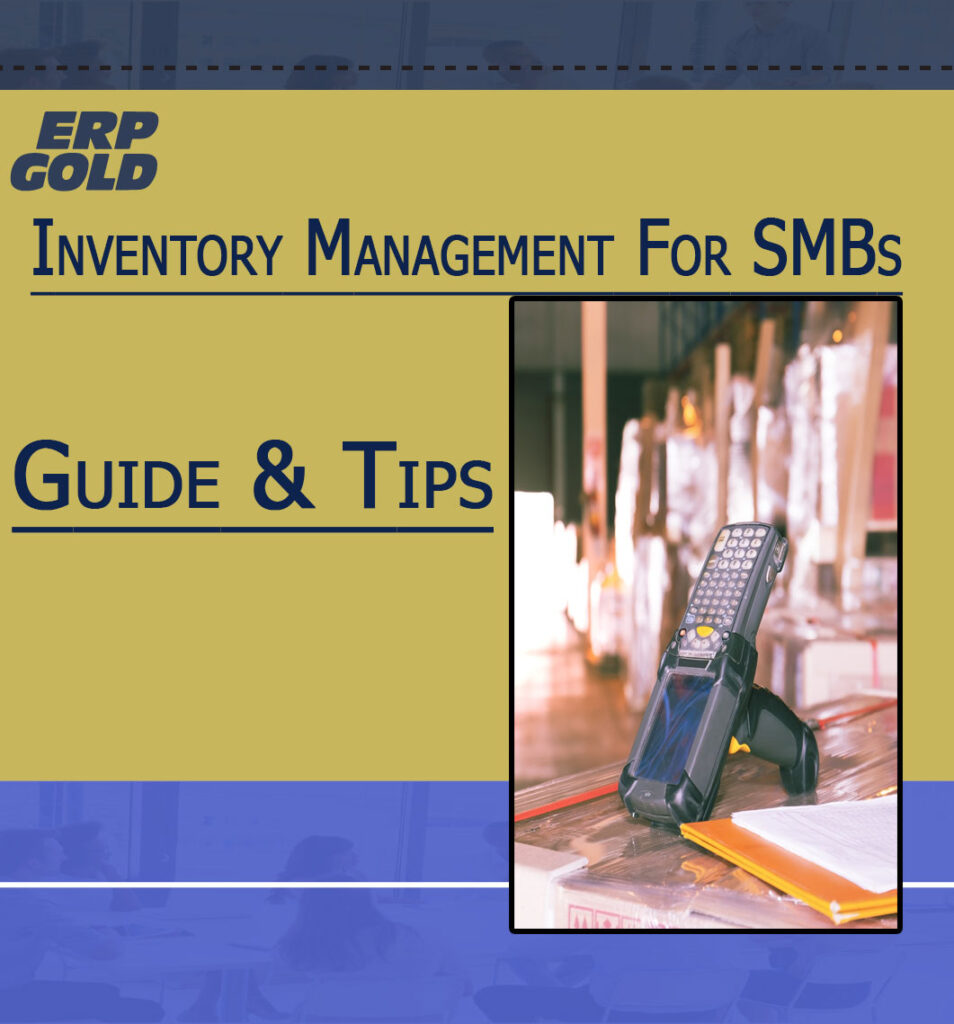What Is Inventory Management?
The process of ordering, storing, utilizing, and selling a company’s inventory is called inventory management. This comprises a raw material, component, completed product management, and storage and processing of such commodities.
- Inventory management encompasses the complete process of managing inventories, from raw materials to finished goods.
- Inventory management strives to effectively streamline stocks to minimize both gluts and shortages.
- Just-in-time (JIT) and materials need planning are two primary strategies for inventory management (MRP).
It is difficult for small businesses to survive and prosper in a competitive business environment. Similarly, other elements are to consider for start-ups trying getting off to a good start.
Let’s look at some inventory management suggestions for small companies and start-ups and some essential business best practices that SMEs need to survive.
 Let us select the best inventory management software for your small company.
Let us select the best inventory management software for your small company.
The first step that every small or new firm can take to guarantee excellent inventory management is to choose a solid inventory management software platform.
With a slew of recent advancements in cloud computing technologies, even small firms with limited resources may have access to cutting-edge software via a monthly subscription.
Software-as-a-Service (SaaS) is transforming how organizations access their software platforms and their data. This is a terrific approach to reduce IT expenditures since SaaS providers host the program and conduct updates and upgrades.
1: Tracking with precision
Inventory tracking throughout all supply chain nodes is a critical component of inventory management—the more precise the tracking, the better. Inventory monitoring accuracy is a vital component of efficient and cost-effective inventory management.
The most excellent software solutions operate in real-time, often using bar-coding and mobile technologies. This allows for the most precise and relevant inventory management possible.
2: Streamline and optimize from the beginning.
Streamlining and optimizing inventory operations does not have to wait till your firm is established. When combined with effective inventory management software, these strategies may be used from the outset, saving you both time and much-needed money. Consider employing an inventory management specialist to help you start if you have the funds.
3: Carry out, frequent manual stock counts.
While the finest software uses real-time stock accounting, frequent stock counts are still required, particularly if some of your items have a shelf life. Manual stock counts allow you to reconcile your stock with what stock you believe you have, and this is the only reliable method for detecting outdated, stolen, or damaged material.
4: Take into account software that interfaces with other platforms.
Choosing inventory management software with integration capabilities is an excellent way to protect small firms from complicated and inefficient operations. If you want to utilize accounting, point-of-sale, or warehouse management software, search for integration possibilities that will make your life simpler. To have a long-term company, there must be some palpable reality of harmony between the many aspects of your systems and procedures.
5: Early standardization is recommended.
It’s natural and acceptable for new or small firms to learn best practices via trial and error. This isn’t inherently bad, but it would be much better to have some intentionally realized uniformity. Each process may be examined and planned ahead of time for increased efficiency and process harmony.
Everything from orders placed and goods received to how stock counts are performed and sales are rung through may be evaluated and standardized. While this may alter over time, having a strategy in place is preferable to having no plan at all.
6: Organize your warehouse or stockroom.
Many money might get unnecessarily tangled or lost in the stock room or warehouse. It is advantageous to plan ahead of time. When a warehouse is well-managed, it may run streamlined, allowing for better inventory use and reduced stock waste. For example, if two items or components are often used together, they must be close to each other to optimize procedures.
Ending thought
Your company’s inventory management plays a crucial role in your success. Make sure you keep track of all your stock and know where and how much of it you have. The last thing you want is to realize that you’ve run out of something when a customer places an order for it. See the horrible you will face then. Thanks

 Let us select the best inventory management software for your small company.
Let us select the best inventory management software for your small company.